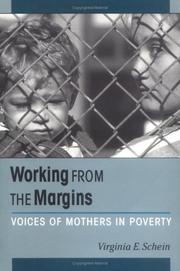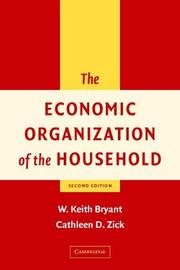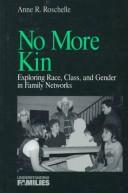| Listing 1 - 6 of 6 |
Sort by
|

ISBN: 0520071492 0520071506 9780520071506 9780520071490 Year: 1991 Publisher: Berkeley: University of California press,
Abstract | Keywords | Export | Availability | Bookmark
 Loading...
Loading...Choose an application
- Reference Manager
- EndNote
- RefWorks (Direct export to RefWorks)
Popular notions about migration to the United States from Latin America and the Caribbean are too often distorted by memories of earlier European migrations and by a tendency to generalize from the more familiar cases of Mexico and Puerto Rico. 'Between Two Islands' is an interdisciplinary study of Dominican migration, challenging many widespread, yet erroneous, views concerning the socio-economic background of new immigrants and the causes and consequences of their move to the United States. Eschewing monocausal treatments of migration, the authors insist that migration is a multifaceted process involving economic, political, and socio-cultural factors. To this end, they introduce an innovative analytical framework which includes such determinants as the international division of laborstate policy in the sending and receiving societiesclass relationstransnational migrant householdssocial networksand gender and generational hierarchies. By adopting this multidimensional approach, Grasmuck and Pessar are able to account for many intriguing paradoxes of Dominican migration and development of the Dominican population in the U.S. For example, why is it that the peak in migration coincided with a boom in Dominican economic growth? Why did most of the immigrants settle in New York City at the precise moment the metropolitan economy was experiencing stagnation and severe unemployment? And why do most immigrants claim to have achieved social mobility and middle-class standing despite employment in menial blue-collar jobs? Until quite recently, studies of international migration have emphasized the male migrant, while neglecting the role of women and their experiences. Grasmuck and Pessar's attempt to remedy this uneven perspective results in a better overall understanding of Dominican migration. For instance, they find that with regard to wages and working conditions, it is a greater liability to be female than to be without legal status. They also show that gender influ
Dominicans (Dominican Republic) --- Households --- Return migration --- Dominican Republic --- United States --- Emigration and immigration. --- Rural conditions. --- Emigration and immigration --- Rural conditions --- Return migration - Dominican Republic --- Dominicans (Dominican Republic) - United States --- Households - Dominican Republic --- Households - United States --- Dominican Republic - Emigration and immigration --- United States - Emigration and immigration --- Dominican Republic - Rural conditions

ISBN: 0875463428 087546341X 1501729853 Year: 1995 Publisher: Ithaca, N. Y. ; London ILR Press
Abstract | Keywords | Export | Availability | Bookmark
 Loading...
Loading...Choose an application
- Reference Manager
- EndNote
- RefWorks (Direct export to RefWorks)
Social problems --- Sociology of the family. Sociology of sexuality --- United States --- Poor women --- Case studies --- Women heads of households --- Single mothers --- Welfare recipients --- Poor women - United States - Case studies. --- Women heads of households - United States - Case studies. --- Single mothers - United States - Case studies. --- Welfare recipients - United States - Case studies. --- United States of America --- Poverty --- Book --- Experiences
Book
ISBN: 0521398401 0521391873 9780521398404 Year: 1990 Publisher: Cambridge: Cambridge university press,
Abstract | Keywords | Export | Availability | Bookmark
 Loading...
Loading...Choose an application
- Reference Manager
- EndNote
- RefWorks (Direct export to RefWorks)
In "The economic organization of the household", Professor Bryant examines the microeconomic principles at work in the institution of the family. In the first book to cover all the major elements of family economics. Bryant begins with a thorough analysis of household demand for and expenditures on goods and services and proceeds to a consideration of saving behavior. Then, in separate chapters, he treats household time allocation and production, human capital investment, fertility, and finally, marriage and divorce. In each case, the book focuses on elaborating and explaining the economic models of household behavior. This book will be of interest to anyone seeking a complete account of the economics of the family. It is cast at the intermediate microeconomics level and will be especially useful to upper division undergraduates and first-year graduate students. Calculus is used in the notes to further develop the models under consideration, but the body of the text is free of difficult math.
Consumption (Economics) --- Income --- Households --- Family --- Income. --- Households. --- Economic aspects --- Economic aspects. --- Ménages (Statistique) --- Consommation --- Families --- Consommation (Economie politique) --- Familles --- Revenu --- Aspect économique --- Économie domestique --- Coût et niveau de la vie --- Ménages --- Famille --- Économie domestique. --- Ménages. --- Revenu. --- Famille. --- Consommation. --- Consumption (Economics) - United States. --- Income - United States. --- Households - United States. --- Family - Economic aspects - United States. --- Family - Economic aspects. --- Économie domestique. --- Coût et niveau de la vie --- Ménages.

ISBN: 0521801419 0521805279 9780521801416 9780521805278 9780511754395 0511136927 9780511136924 0511133324 9780511133329 0511134258 9780511134258 9780511134739 0511134738 9786610308859 6610308853 0511754396 1107143764 9781107143760 1280308850 9781280308857 0511201125 9780511201127 0511311419 9780511311413 Year: 2006 Publisher: Cambridge ; New York : Cambridge University Press,
Abstract | Keywords | Export | Availability | Bookmark
 Loading...
Loading...Choose an application
- Reference Manager
- EndNote
- RefWorks (Direct export to RefWorks)
Surveying the field of the economics of the household, the second edition of this text reviews the theory of the consumer at the intermediate undergraduate level. It then applies and extends it to consumer demand and expenditures, consumption and saving, time allocation among market work, home work, and leisure, human capital emphasizing investment in education, children and health, fertility, marriage, and divorce. Influenced by Gary Becker and his associates, the models developed are used to help explain modern U.S. trends in family behavior. Topics are discussed with the aid of geometry and a little algebra. For those with calculus, mathematical endnotes provide the models on which the text discussions are based and interesting applications beyond the scope of the text.
Consumption (Economics) --- Income --- Households --- Family --- Economic aspects --- Families --- Households. --- Income. --- Economic aspects. --- Consumption (Economics). --- Population --- Home economics --- Family income --- Fortunes --- Household income --- Personal income --- Economics --- Finance --- Property --- Wealth --- Gross national product --- Profit --- Purchasing power --- Consumer demand --- Consumer spending --- Consumerism --- Spending, Consumer --- Demand (Economic theory) --- Economic conditions --- Business, Economy and Management --- Consumption (Economics) - United States --- Income - United States --- Households - United States --- Family - Economic aspects - United States --- Family - Economic aspects

ISBN: 033392438X 0333924371 9780333924389 Year: 2004 Publisher: Basingstoke: Palgrave MacMillan,
Abstract | Keywords | Export | Availability | Bookmark
 Loading...
Loading...Choose an application
- Reference Manager
- EndNote
- RefWorks (Direct export to RefWorks)
Family --- Households --- Sex role --- History. --- Agriculture --- Crop yields --- Fertilizers --- Congresses --- Congresses. --- -Households --- -Family --- -Gender role --- Sex (Psychology) --- Sex differences (Psychology) --- Social role --- Gender expression --- Sexism --- Population --- Families --- Home economics --- Family life --- Family relationships --- Family structure --- Relationships, Family --- Structure, Family --- Social institutions --- Birth order --- Domestic relations --- Home --- Kinship --- Marriage --- Matriarchy --- Parenthood --- Patriarchy --- History --- Social aspects --- Social conditions --- -History --- -Population --- Gender role --- Family - Great Britain - History. --- Households - Great Britain - History. --- Sex role - Great Britain - History. --- Family - United States - History. --- Households - United States - History. --- Sex role - United States - History. --- Gender roles --- Gendered role --- Gendered roles --- Role, Gender --- Role, Gendered --- Role, Sex --- Roles, Gender --- Roles, Gendered --- Roles, Sex --- Sex roles

ISBN: 1452249709 0585256152 9780585256153 9781483328034 1483328031 0761901582 0761901590 9780761901587 9780761901594 9781452249704 Year: 1997 Publisher: Thousand Oaks : SAGE Publications,
Abstract | Keywords | Export | Availability | Bookmark
 Loading...
Loading...Choose an application
- Reference Manager
- EndNote
- RefWorks (Direct export to RefWorks)
Many scholars and political analysts assume that thriving kin and non-kin social support networks continue to characterize minority family life. Policy recommendations based on these underlying assumptions may lead to the implementation of harmful social policy. No More Kin examines extended kinship networks among African American, Chicano and Puerto-Rican families in the United States, and provides an integrated theoretical framework for examining how the simultaneity of gender, race and class oppression affects minority family organization.
Family -- United States. --- Households -- United States. --- Kinship -- United States. --- Minorities -- Social networks -- United States. --- Minorities -- United States -- Family relationships. --- Social networks -- United States. --- Families --- Kinship --- Households --- Social networks --- Minorities --- Family & Marriage --- Sociology & Social History --- Social Sciences --- Family --- Family life --- Family relationships --- Family structure --- Relationships, Family --- Structure, Family --- Social institutions --- Birth order --- Domestic relations --- Home --- Marriage --- Matriarchy --- Parenthood --- Patriarchy --- Ethnology --- Clans --- Consanguinity --- Kin recognition --- Social aspects --- Social conditions --- Ethnic minorities --- Foreign population --- Minority groups --- Persons --- Assimilation (Sociology) --- Discrimination --- Ethnic relations --- Majorities --- Plebiscite --- Race relations --- Segregation
| Listing 1 - 6 of 6 |
Sort by
|

 Search
Search Feedback
Feedback About UniCat
About UniCat  Help
Help News
News